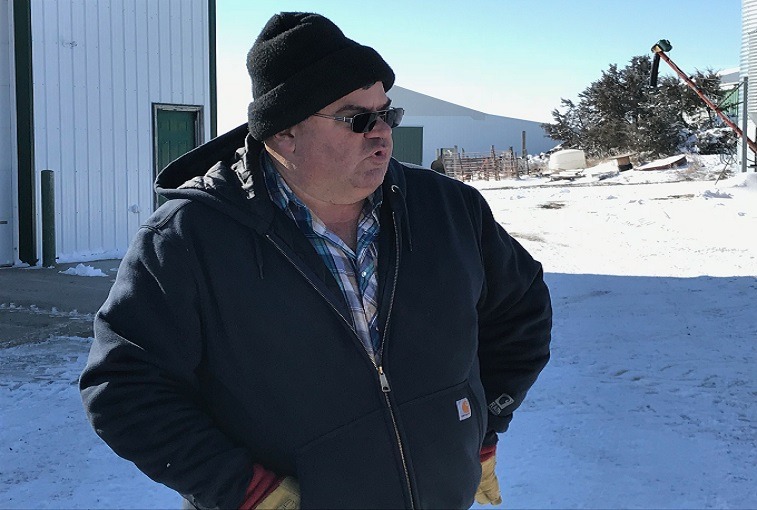Like a lot of farmers and ranchers, Lynn Gustin was itching for warmer weather, so he could get back into the field, during an interview in early 2018. The 59-year-old has a lot more peace of mind than four years before when he went in for his first colonoscopy and heard the word nobody wants to hear: cancer.
“And I put it off and put it off, which I shouldn’t have done,” he said of the procedure.
A colonoscopy is the best way to spot colorectal cancer, the third-most-common cancer diagnosed and the second-leading cause of cancer-related deaths in the United States. Most colorectal cancers begin as a non-cancerous polyp, a growth within the inner lining of the colon or rectum. Over time and without removal, these polyps develop into cancer.
Gustin’s colonoscopy revealed 13 polyps in his colon. One polyp was cancerous and another was pre-cancerous.
“It scares the hell out of you, I’ll tell you that, when they tell you something like that,” Gustin said.
Ten weeks later, Gustin had a colectomy at Sanford Health in Bismarck, North Dakota, where Kimber Boyko, M.D., removed two 8-inch pieces of his colon.
Luckily, the cancer hadn’t spread past the colon. After the surgery, Gustin was cancer-free and didn’t need any additional chemotherapy or radiation.
“Of course, when you get a phone call and the doctor lays the ‘C’ word on you, you know a lot of things go through your mind. You know, that week before, you’re like, ‘Oh, man.’ But then you go in, and it was a major surgery to remove two pieces of my colon, but everything went well,” Gustin said.
Colorectal cancer screenings can catch issues early
Sanford Health recommends all patients without risk factors begin regular screening at the age 45.
There are a number of colorectal cancer screening options Sanford Health offers:
- Colonoscopy, which is a procedure where a physician uses a scope to examine the lining of the colon.
- A fecal immunochemical test (FIT), which checks for hidden blood in a stool.
- Cologuard, a FIT-DNA test that checks stool samples for blood and cancer DNA biomarkers.
Gustin has been doing his part to spread the word to his family and friends. He wants everyone to get screened as soon as their doctor recommends.
“Everyone is scared of the prep, you know, with the colonoscopy. But that few hours of prep, when I look at what I had to go through for the next month, yeah, that’s nothing,” Gustin said.
And Gustin is making sure he’s practicing what he’s preaching. He’s been getting his colonoscopy every year since he had his surgery.
“I just had one here two weeks ago and now they said I can wait two years to get my next one because everything looks clear,” Gustin said last year.
So now he can wait patiently for the snow to melt and the ground to thaw, so he can get back into the field. Of course, he will still leave plenty of time to spend with his wife, kids and grandchildren.
Learn more
- Colonoscopy becomes lifesaver for baseball player, publisher
- Colonoscopies: Debunking the myths
- Colorectal cancer screening: Check out the options
…
Posted In Cancer, Cancer Screenings, Health Information, Healthy Living
